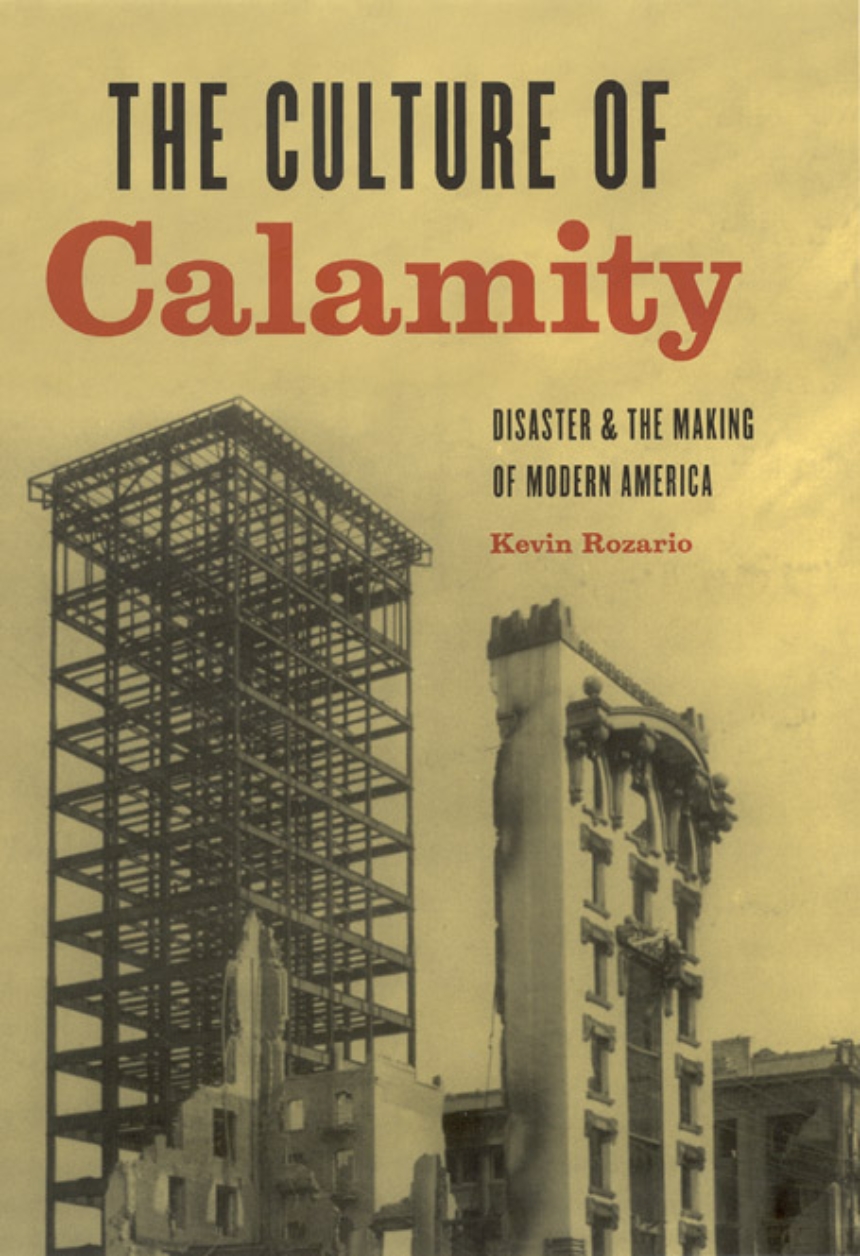The Culture of Calamity
Disaster and the Making of Modern America
Turn on the news and it looks as if we live in a time and place unusually consumed by the specter of disaster. The events of 9/11 and the promise of future attacks, Hurricane Katrina and the destruction of New Orleans, and the inevitable consequences of environmental devastation all contribute to an atmosphere of imminent doom. But reading an account of the San Francisco earthquake of 1906, with its vivid evocation of buildings “crumbling as one might crush a biscuit,” we see that calamities—whether natural or man-made—have long had an impact on the American consciousness.
Uncovering the history of Americans’ responses to disaster from their colonial past up to the present, Kevin Rozario reveals the vital role that calamity—and our abiding fascination with it—has played in the development of this nation. Beginning with the Puritan view of disaster as God’s instrument of correction, Rozario explores how catastrophic events frequently inspired positive reactions. He argues that they have shaped American life by providing an opportunity to take stock of our values and social institutions. Destruction leads naturally to rebuilding, and here we learn that disasters have been a boon to capitalism, and, paradoxically, indispensable to the construction of dominant American ideas of progress.
As Rozario turns to the present, he finds that the impulse to respond creatively to disasters is mitigated by a mania for security. Terror alerts and duct tape represent the cynical politician’s attitude about 9/11, but Rozario focuses on how the attacks registered in the popular imagination—how responses to genuine calamity were mediated by the hyperreal thrills of movies; how apocalyptic literature, like the best-selling Left Behind series, recycles Puritan religious outlooks while adopting Hollywood’s style; and how the convergence of these two ways of imagining disaster points to a new postmodern culture of calamity. The Culture of Calamity will stand as the definitive diagnosis of the peculiarly American addiction to the spectacle of destruction.
Reviews
Table of Contents
Introduction
The Golden Age as Catastrophe
1. The People of Calamity
Catastrophic Optimism in Early America
Interlude
The San Francisco Earthquake and Fire of 1906
2. What Comes Down Must Go Up
Disasters and the Making of American Capitalism
3. “That Enchanted Morning”
Or, How Americans Learned to Love Disasters
4. The Modern Way of Disaster
The Nuclear Age and the Origins of Federal Emergency Management5. The Ends of Disaster
The Culture of Calamity in the Age of Terror
Epilogue
A Reckoning: Hurricane Katrina and the “Murder” of New Orleans
Notes
Index
Awards
New England American Studies Association: New England American Studies Association Award
Won
